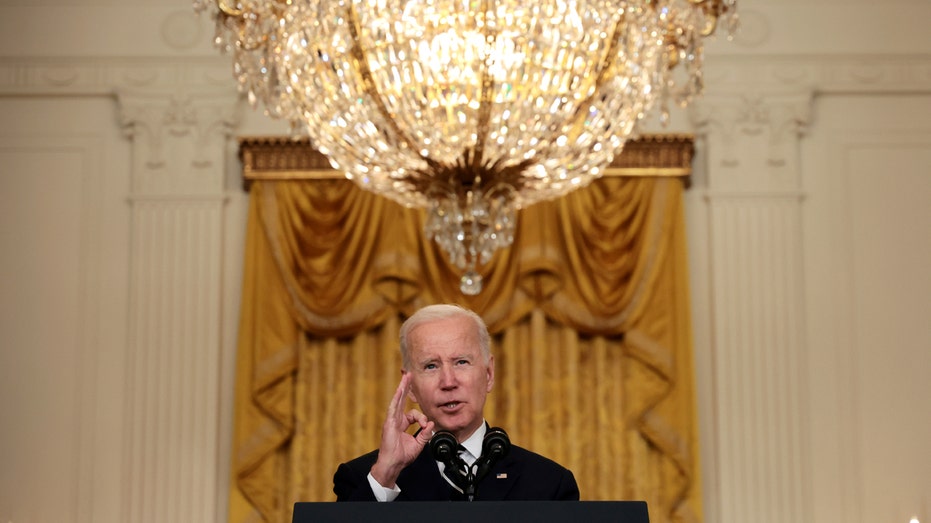Rep. Byron Donalds, R-Fla., argues the Democrat’s massive spending bill will hurt small businesses and working families in the country.
President Biden unveiled a revised framework last week for a modified social spending plan that imagines spending close to $1.75 trillion over the next decade, but a new analysis released Tuesday suggests the actual price tag is far higher.
But findings from the Penn Wharton Budget Model, a nonpartisan group at the University of Pennsylvania’s Wharton School, suggest Biden’s plan could actually cost more than $3.9 trillion ($3,981,000,000,000) in a scenario where the spending and revenue provisions are made permanent.

President Biden delivers remarks on his proposed “Build Back Better” social spending bill in the East Room of the White House on Oct. 28, 2021, in Washington, D.C. Earlier in the day Biden met with House Democrats on Capitol Hill to share details of (Photo by Chip Somodevilla/Getty Images / Getty Images)
The bulk of the programs and spending initiatives in the bill are poised to sunset in just a few years (and in some cases – like the one-year expansion of the child tax credit – even sooner than that). But lawmakers often pass multiyear extensions down the road, even though the Congressional Budget Office assumes those measures will expire when it scores the legislation.
Democrats have made it clear that by taking an across-the-board cuts approach to the spending package, they intend to force a future Congress to extend popular programs in a few years (whether or not they will be able to do so ultimately depends on the 2022 midterms and 2024 presidential election).
For instance, in the plan rolled out last Thursday, Biden proposed a temporary, one-year extension of the expanded child tax credit, which provides up to $3,600 per child to families. The White House estimated the temporary expansion would cost about $100 billion annually. But Democrats and the president have both pushed for a permanently expanded child tax credit, which would actually cost about $1.6 trillion.

Sen. Joe Manchin, D-W.Va., speaks to the Economic Club, Tuesday, Oct. 26, 2021, in Washington. (AP Photo/Jacquelyn Martin) (AP Newsroom)
It’s not uncommon for lawmakers to take this so-called “budget gimmick” approach: For instance, in 2017, Republicans passed the Tax Cuts and Jobs Act that included several income tax provisions slated to sunset within a few years – but lawmakers indicated at the time they had no intention of letting that happen.
GET FOX BUSINESS ON THE GO BY CLICKING HERE
“As more of the real details outlined in the basic framework are released, what I see are shell games and budget gimmicks that make the real cost of this so-called ‘$1.75 trillion dollar’ bill estimated to be twice as high if the programs are extended or made permanent,” Manchin said during a news conference. “That is a recipe for economic crisis.”
If Biden succeeds in passing this proposal along with a $550 billion bipartisan infrastructure plan, Congress will have approved a staggering $5 trillion in spending in the less than one year since he took office, an unprecedented level. The nation’s debt level is already at a historic high of $28 trillion and is on track to surpass $30 trillion.
Fox Business 11/3/21
By Megan Henney
https://www.foxbusiness.com/politics/bidens-spending-plan-true-cost-penn-wharton-analysis
